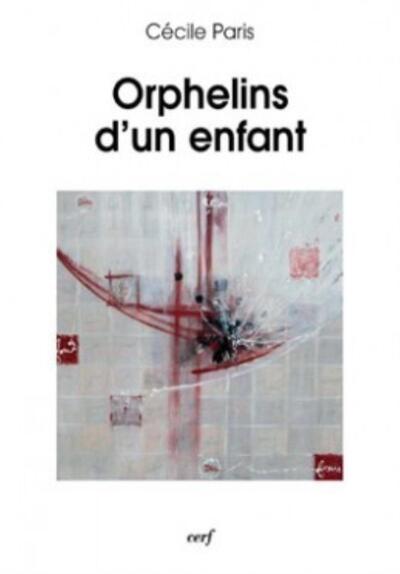- EAN13
- 9782204098786
- Éditeur
- Cerf
- Date de publication
- 21 février 2013
- Collection
- L'histoire à vif
- Nombre de pages
- 172
- Dimensions
- 20 x 14 x 1,2 cm
- Poids
- 193 g
- Langue
- fre
Orphelins D'Un Enfant
Cécile Paris
Cerf
Prix public : 13,00 €
On dit " veuve " ou " veuf " lorsqu'on a perdu son conjoint, " orphelin " lorsqu'on a perdu ses parents, mais il n'existe pas de mot pour désigner les parents qui ont perdu un enfant. Cécile et Benoît sont donc " orphelins " de leur fils, Vianney et Henry de leur frère de sang, les Dominicains de leur frère en religion. Vincent avait trente ans lorsqu'il mourut : il venait de faire " profession solennelle " dans l'ordre des Frères prêcheurs, les Dominicains. Quand Cécile, sa mère, prit des notes dans un petit carnet qui devint un journal relatant ce qu'elle vivait auprès de son fils, alors en phase terminale d'un cancer du poumon, elle était loin de se douter que cela aboutirait à l'écriture de ce livre. Sa route devint une véritable quête spirituelle pour comprendre ce qui avait permis à son fils de passer si vite, sans fléchir, " de la mort à la Vie ". Après de solides études, Vincent avait fait le choix de la vie religieuse pour transmettre sa foi. Comment a-t-il accepté sa mort sans révolte ? Comment sa mère, si passionnément engagée dans sa maternité, peut-elle affirmer que, malgré tout, la vie est magnifique ? Se voulant à la fois un témoignage et un réconfort pour ceux qui, comme elle et Benoît, sont des mères et des pères sans nom, " Orphelins d'un enfant " tente de répondre à ces questions. -- We say 'widow' or 'widower' when someone has lost their spouse; 'orphan' when children have lost their parents, but there is no word to describe parents who have lost a child. So when Vincent died, Cécile and Benoît became the 'orphans' of their son; Vianney and Henry of their biological brother, and the Dominicans of their brother in religion. Vincent was thirty when he died, just after making his solemn vows in the Dominican Order of Preachers. When his mother, Cécile, began confiding her thoughts to a little notebook, which would later become a diary in which she described how she dealt with her son who was then dying from lung cancer, little did she think that one day they would result in a book. Her path became a veritable spiritual quest to understand what had enabled her son to pass so rapidly and inexorably 'from death to Life'. After a sound education, Vincent had chosen the religious life in order to spread his Faith. How did he manage to meet death with such equanimity? How was his mother, whose maternal feelings were so strong, able to state that despite everything, life is wonderful? Aiming to serve both as a personal account and a source of comfort to those who, like Cécile and Benoït, are mothers and fathers who have lost a child, 'Orphelins d'un enfant' attempts to answer these questions.


















